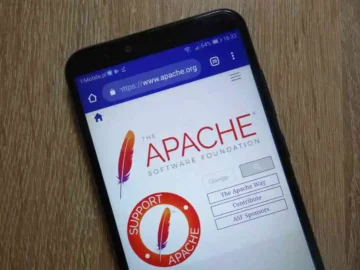Israel has faced a series of cyberattacks targeting its critical infrastructure, including gas stations and credit card systems. The latest cyberattack occurred on Sunday when thousands of credit card readers across Israeli gas stations and retail outlets malfunctioned due to a suspected cyberattack on credit card systems.
The disruption, which lasted for an hour, has raised concerns about the vulnerability of Israel’s digital payment systems and the growing risks posed by gas station cyberattacks.
The cyberattack on credit card systems, which primarily affected credit card readers in Israeli gas stations and supermarkets, was attributed to a suspected DDoS (Distributed Denial of Service) cyberattack.
Hyp Credit Guard, a company responsible for ensuring the cybersecurity of payment systems in Israel, quickly addressed the issue, stating that the attack targeted the communication services used by many retailers, reported
The Jerusalem Post.
Cyberattack on Credit Card and Gas Station
The company’s statement clarified that it had ruled out the possibility of a broader, more severe cyberattack, attributing the malfunction to a targeted DDoS assault on telecommunications providers. Fortunately, the issue was resolved, and the systems were restored to normal operation after about an hour.
The company’s spokesperson noted, “In the last hour, we experienced a DDoS attack on some of the company’s services and the communication providers connected to us. At this point, the attack was blocked, and the service returned to normal operation. We are coordinating with all security agencies to ensure continued normal operation.”
While this incident was resolved relatively quickly, it highlights the growing threat posed by cyberattacks on the financial and retail sectors, especially on gas stations and stores that rely heavily on real-time payment processing.
A Pattern of Iranian Cyberattacks
This most recent cyberattack is not an isolated event. It follows a pattern of ongoing cyber hostilities between Israel and various adversarial groups, with Iranian-linked hackers often suspected in such attacks. For example, a similar cyberattack on credit card systems was reported in October, when a major Israeli payment solution company, Sheba (Automated Bank Services), was targeted. The attack caused delays in processing debit card transactions but did not affect the core operations of Israel’s national payment systems, thus preventing a wider market disruption.
Israeli cybersecurity experts believe these attacks are part of a larger strategic effort by Iran to disrupt Israel’s economy and infrastructure. Iranian-backed cyber groups have increasingly targeted Israeli civilian systems, including financial networks, communications, and government databases. These attacks come amid heightened tensions in the region, especially since the onset of the conflict in Gaza.
Gas Stations: A Growing Target
In addition to retail outlets, Israeli gas stations have also become frequent targets for cyberattacks on gas stations. Gas stations, which process numerous credit card transactions daily, are critical nodes in the financial ecosystem. A successful credit card cyberattack on these stations can not only disrupt payments but also damage public trust in the security of digital payment methods.
The latest incident in Israel underscores how vulnerable these key infrastructure points are to cyber threats. Gas stations, which rely on external payment processing services, are susceptible to disruptions caused by attacks on third-party communication providers or direct breaches of payment systems. The relatively brief nature of the attack did not cause long-term damage, but the mere fact that such an attack is possible demonstrates the risks posed by cybercriminals, especially in a region where cyber warfare is an increasingly common tactic.
A Broader Trend: Escalating Cyber Tensions in Israel
The cyberattack on gas stations and credit card systems in Israel is part of a broader trend of rising cyber conflicts in the region. Since the outbreak of the Gaza conflict, the number of cyberattacks targeting Israeli institutions has surged. The Israeli government has even established special defense mechanisms, such as the “Global Cyber Iron Dome,” aimed at defending against cyber threats from state and non-state actors.
Earlier in the year, Israeli cybersecurity services faced significant challenges as several government websites, including the Ben Gurion Airport website, were taken offline by cyberattacks on Israeli websites. Additionally, hacker groups such as Anonymous Sudan and others have launched persistent attacks against Israel’s public-facing digital infrastructure, including its emergency alert systems.
In mid-2023, a wave of cyberattacks compromised over 60 Israeli websites within a matter of days. These included not only government websites but also private organizations, illustrating the broad and indiscriminate nature of these attacks. The hacker collective Anonymous for Justice in Palestine further escalated tensions by leaking sensitive documents from Israel’s security and military ministries, continuing a pattern of using cyberattacks as a tool of political protest.




